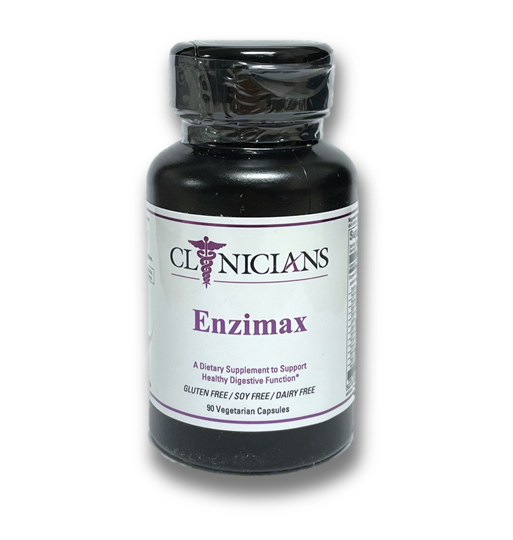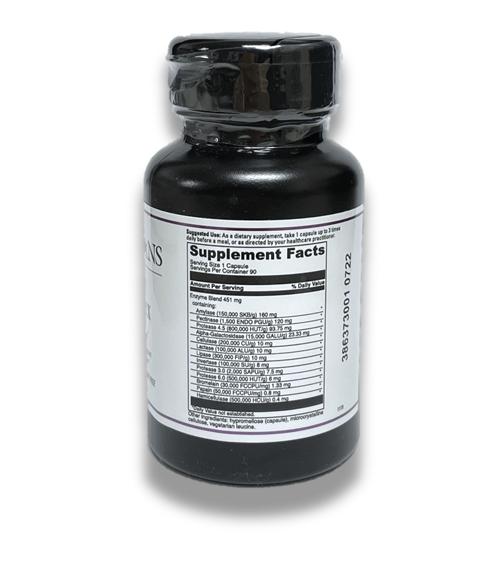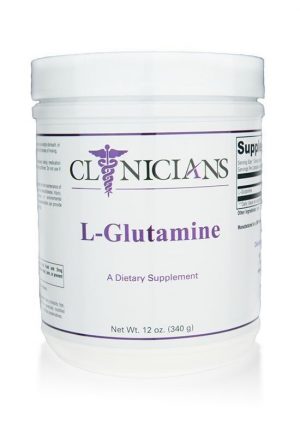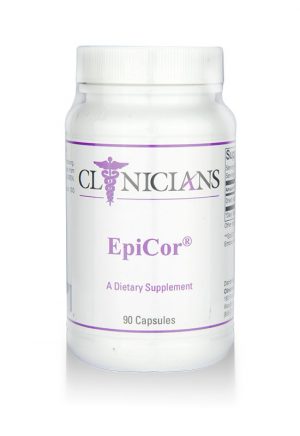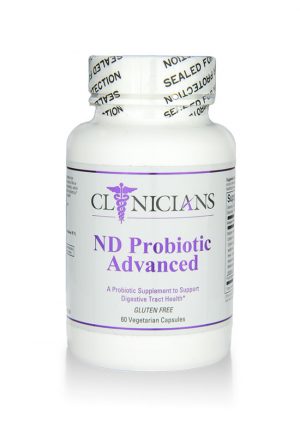Description
Enzimax (Digestive Enzyme), 90 Vcaps
Enzymes are protein based compounds that function as catalysts to initiate and regulate the biochemical processes necessary for life. The human body produces thousands of different enzymes to catalyze reactions that are needed to maintain homeostasis, including break down, synthesis and repair.
Enzymes operate with substrate specificity, meaning they will only catalyze a reaction with a specific compound or group of compounds. For example, proteases will only catalyze the breakdown of proteins and will not react with carbohydrates or fats. The ability of an enzyme to interact with its substrate is attributed to the conformational structure of the enzyme’s active site. Simply stated, the active site of a protease will fit with the shape of proteins where it does not fit with a carbohydrate or fat.
The need for enzymes are exacerbated with altered digestive function in the upper digestive tract. When stomach acid is altered there is a downstream effect on enzyme secretion from the pancreas. This creates a need for supplemental enzymes to facilitate proper breakdown, absorption and assimilation of nutrients.* This comprehensive formula includes the following broad range of enzymes (listed below with their functions) at clinically significant levels.*
- Amylase (150,000 SKB/g) – 160 mg
- Pectinase (1,500 ENDO PGU/g) – 120 mg
- Protease 4.5 (800,000 HUT/g) – 93.75 mg
- Alpha-Galactosidase (15,000 GALU/g) – 23.33 mg
- Cellulase (200,000 CU/g) – 10 mg
- Lactase (100,000 ALU/g) – 10 mg
- Lipase (300,000 FIP/g) – 10 mg
- Invertase (100,000 SU/g) – 8 mg
- Protease 3.0 (2,000 SAPU/g) – 7.5 mg
- Protease 6.0 (500,000 HUT/g) – 6 mg
- Bromelain (30,000 FCCPU/mg) – 1.33 mg
- Papain (50,000 FCCPU/mg) – 0.8 mg
- Hemicellulase (500,000 HCU/g) – 0.4 mg

